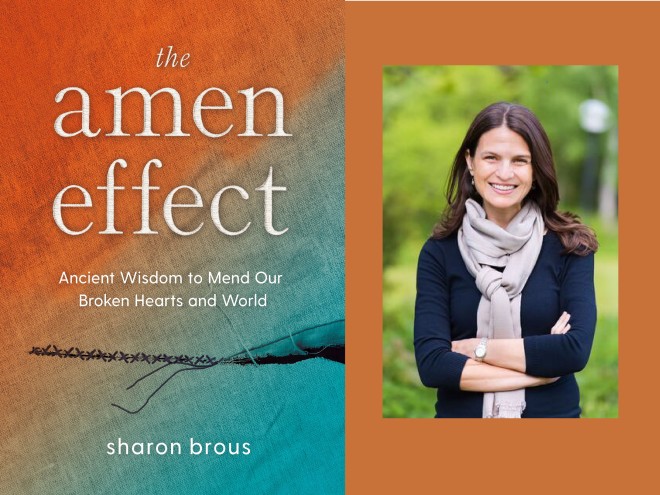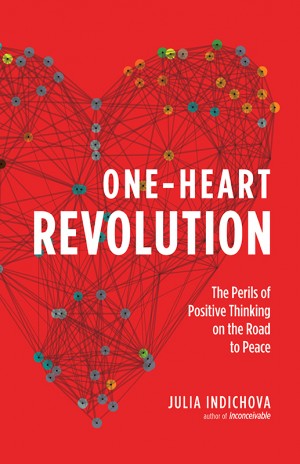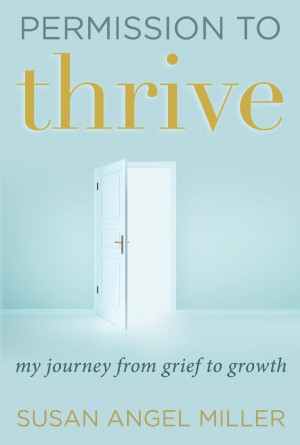Early in The Amen Effect, Sharon Brous describes a passage from the Mishnah about an annual pilgrimage that took place when the temple in Jerusalem still stood. Hundreds of thousands of Jews ascended to the Temple Mount, entered the courtyard, turned to the right, and then circled and exited to the left. Some, however, entered and veered left. People would ask them, “Why are you going the wrong way?” And they might say, “Because I am bereaved.” To which the other would offer words of comfort.
Drawing from her years as a rabbi, and weaving together Jewish tradition, science, psychology, and biology, Brous explores how to bridge the gap between those on the right and the left — both literally and figuratively. She calls our universal, human longing for connection the “amen effect.” From the Hebrew word emunah, meaning “to believe” or “to affirm,” the word amen serves as an acknowledgement of the other. Yes, I believe you, I see you. Amen.
The Amen Effect reads as an extended philosophical and spiritual conversation about the perils of alienation and tribalization and the importance of the “true, heartfelt encounter.” While the book is rooted in religious teaching, one need not adhere to a religious tradition to appreciate its wisdom. In fact, one of Brous’s strengths as a writer is her seemingly effortless ability to bring together many voices, ancient and recent, Jewish and not, to weigh in on how to navigate sorrow — our own and others’ — and how to heal.
Brous’s empathy is tempered with reality: she avoids sentimentality and easy answers. She advocates showing up for others and being open to conversations with those who hold opposing views. Still, she acknowledges that “a just society will be born through reckoning and reparation, not wide-eyed engagement with people and movements openly fueled by ignorance, racism, and fear.”
Brous gracefully balances the individual’s desire for meaning with their concern for others. The two are inextricably intertwined because, one day, we will be the ones veering to the left. And it will be up to others to whisper amen to us on our journey.
The epilogue, “Write a New Story,” provides short suggestions about how to put the amen effect into practice in one’s daily life.
Angela Himsel’s writing has appeared in The New York Times, the Jewish Week, the Forward and elsewhere. Her memoir is listed in the 23 Best New Memoirs at bookauthority.org. She is passionate about her children, Israel, the Canaanites and chocolate.





